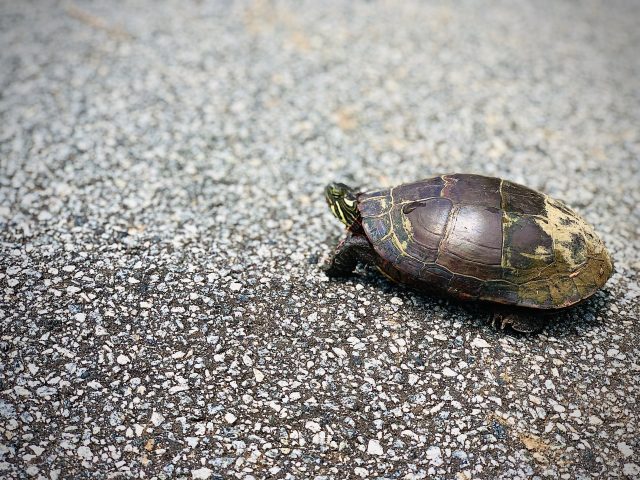It’s turtle nesting season again. Turtles are travelling to find proper nesting material to lay their eggs in. This includes crossing roads and even laying eggs on road shoulders. Unfortunately, road mortality is the leading cause of death in adult turtles. Turtles take a very long time to mature to breeding age. There are 3 main types of turtles on Base, Blanding’s, Snapping and Painted. Blanding’s turtle and Snapping turtles have been recognized as Species-at-Risk and are protected by law.
Base Environment Office would ask that you be aware of turtles when you are driving. At risk areas have been marked with turtle crossing signs, but any section of road near water has potential for turtle crossing.
If you believe it’s necessary to move a turtle off the road, there are a few things to keep in mind:
1. Handle the animal as little as possible and only if you feel it’s in danger of being struck. Harassing a Species-at-Risk is a prohibited by law.
2. Turtles can and will bite, especially Snapping turtles, their necks are quite long and can reach over the halfway point on their shells. Carry a turtle by the edge of the shell at the back of the body.
3. Carry the turtle close to the ground; across the road in the direction it was headed. Low, in case the animal startles you and you drop it in the direction it was headed so it won’t turn around and try to cross again.
4, Wash your hands with soap and water. Please report turtle sightings including size, colour, location and time to Base Environment Office at local 1331 or 1344.
By: Base Environment Office






